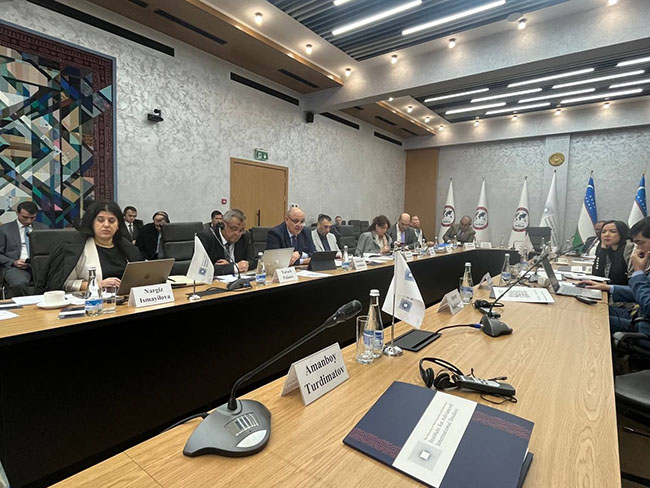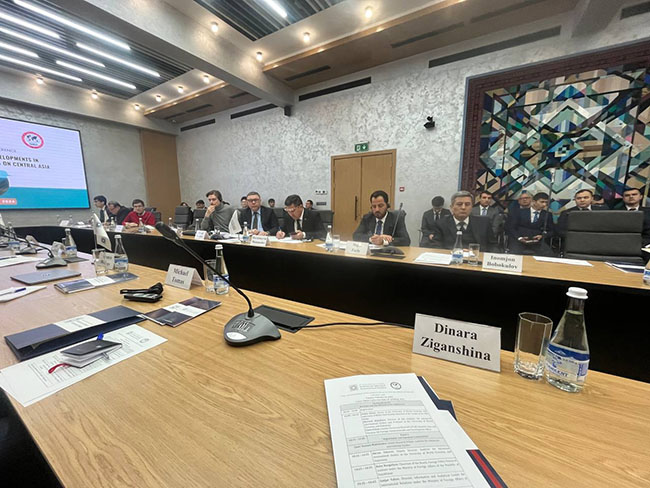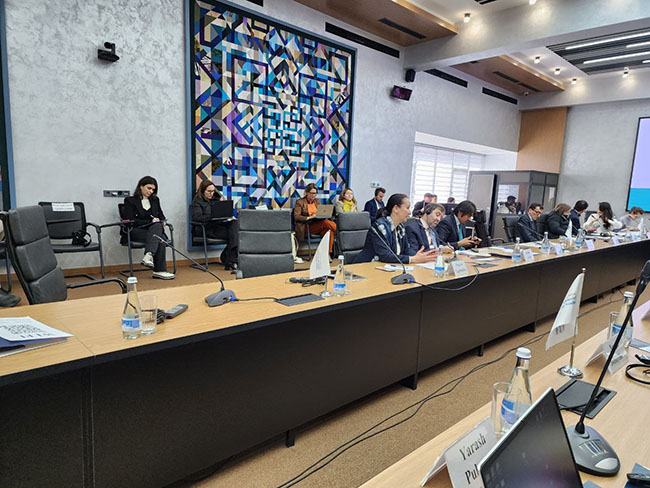No. 5 (449) February 2024
INTERNATIONAL CONFERENCE "THE CONTEMPORARY DEVELOPMENTS IN AFGHANISTAN: IMPLICATIONS ON CENTRAL ASIA"
The conference �The Contemporary Developments in Afghanistan: Implications on Central Asia� organized by the Institute for Advanced International Studies at the University of World Economy and Diplomacy took place in Tashkent on the 20th of February.

This workshop presented discussions on key aspects of politics, economics, social life and security in Afghanistan and highlighted Afghanistan�s role as a key element in Eurasian regional dynamics and the pressing issues that require attention and joint efforts.
Four key themes that reflect the current situation in Afghanistan and its implications for the wider region were addressed in particular:
- Afghanistan's role in Eurasian connectivity
- Afghanistan and Central Asia: relations on water issues
- Terroristic groups in Afghanistan: challenges and strategies for regional security
- Humanitarian crisis and refugee issues in Afghanistan

The session Afghanistan and Central Asia: relations on water issues addressed potential benefits and risks concerning agricultural development, economic growth, and employment prospects in Afghanistan. Particular attention was paid to the impact of the Qosh Tepa Canal construction on neighboring countries.
Iskandar Abdullaev, Visiting Professor of the Justus Liebig University Giessen talked on the potential impacts of the Qosh Tepa Canal and on the actions to strengthen cooperation between the countries. Among the cooperation tracks he mentioned agriculture and water improvements in Amu Darya Basin, increasing trade between CA and Afghanistan, capacity building, joint research and developing dialogue platforms.
Yarash Pulatov, Head of Division at the Institute of Water Problems, Hydropower and Ecology, National Academy of Sciences of Tajikistan put focus on the need for sound water use in the region as a way to adapt to climate change and meet growing water demands of the countries.

Dinara Ziganshina, Director of SIC ICWC talked on legal and institutional framework of water cooperation. The 1992 Almaty Agreement regulates water use between the Central Asian countries. However, no agreement exists that includes an agreed water withdrawal by Afghanistan in the Amu Darya Basin. The general matters related to the use of frontier waters with Afghanistan are regulated by the 1958 Treaty on the Regime of Soviet-Afghan State Frontier as well as by customary international norms. All countries and international partners shall follow to the following international law norms in the process of transboundary water development:
- Equitable and reasonable use of the watercourse
- Obligation not to cause significant harm
- Providing a minimum environmental flow
- Good faith cooperation with a view of achieving the optimum use and adequate protection of an international watercourse
- Regular exchange of data and information between riparian countries
- Consultations on transboundary waters
- Prior notification of planned measures
- Environmental impact assessment in a transboundary context
Davletmurad Mamedov, representative of the Ministry for Foreign Affairs of Turkmenistan mentioned the important role of ICWC in the region and urged the countries to develop a region-wide water conservation strategy.
In the course of discussions, the participants exchanged their views on adaptation to climate change and on socio-economic implications of non-coordinated development.